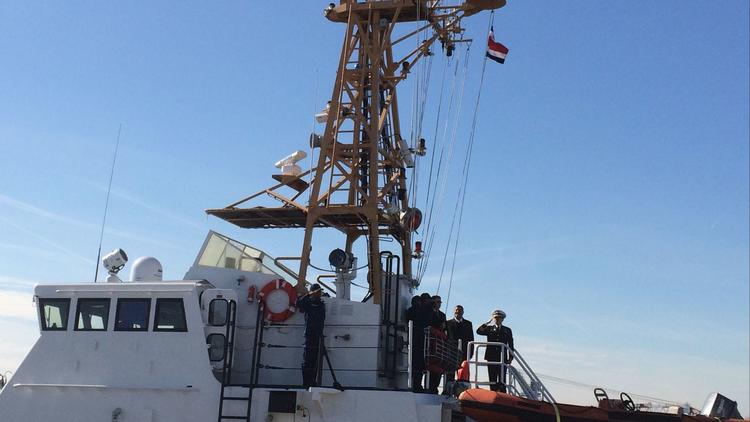Costa Rica News – The Costa Rican flag rose Tuesday in Baltimore on a refurbished former U.S. Coast Guard patrol boat, one of two outdated vessels the United States is donating to the Central American nation to help fight drug and human trafficking.
As part of the transfer, worth about $18 million, a pair of Costa Rican Coast Guard crews are undergoing 10 weeks of training at the Coast Guard Yard in Curtis Bay, where they will be taught to operate the 110-foot cutters formerly known as the Long Island and the Roanoke Island.
Outfitted with new radar, communications equipment and paint, the newly christened Libertadors Juan Rafael Mora Porras and Gen. Jose M. Canas Escamilla, will make their 19-day maiden voyages in April to the port of Caldera on Costa Rica’s west coast.
Sharon Day, the U.S. ambassador to Costa Rica, called the donation “the result of long hours of work and unrelenting dedication.”
“Fully trained and full of conviction, the Costa Rican Coast Guard will return to their country prepared and ready to play a transformational role protecting its waters and safeguarding Costa Rica territory from a scourge of drug trafficking, human trafficking, illegal fishing and other illicit activities,” Day said.
Román Macaya Hayes, Costa Rica’s ambassador to the United States, said that although the country has no army, it will not tolerate lawlessness — and the new patrol boats will extend its reach and aid in the crime fight.
“What happens at sea does not stay at sea,” he said. “It enters our neighborhoods and schools, and starts to threaten the very fabric of our society.”
The Island-class cutters, known as the “workhorses of the Coast Guard,” are headed to much warmer waters. They had been based in Alaska until their decommissioning in 2015. They are among 38 in the class, built in the late 1980s, that are being phased out as newer, larger replacements are commissioned.
The boats were the fifth and sixth to be donated through the Office of International Acquisition’s Excess Defense Articles program, which offers used U.S. military equipment to allied nations. Pakistan and the Black Sea nation of Georgia each also received a pair of boats; four others have been scrapped.
Rear Adm. Michael J. Haycock, the director of the program, said the cost of maintaining the boats rises as they become more and more outdated. When they’re decommissioned, the vessels are first offered to other U.S agencies; if they’re not claimed, they are advertised for sale to the militaries of U.S. allies.
If the boats don’t sell, refurbishing and donating them saves the military the cost of scrapping them, and strengthens relationships with partner nations. The deal with Costa Rica was struck in October.
“These boats have served the U.S. Coast Guard well,” Haycock said. “If the costs weren’t climbing on each of these, they’d still be in operation.”
Gustavo Mata Vega, Costa Rica’s public security minister, said the patrol boats will be crucial to cutting off a “cocaine tsunami” that could bring as much as 3,300 tons of the drug through the country this year.
“Let this be the beginning of a great cooperation,” he said, through a translator.
Admiral Charles D. Michel, vice commandant of the U.S. Coast Guard, exchanged ceremonial gifts with Vega before the flag raising Tuesday.
He said he planned to attend the boats’ formal commissioning ceremony in Caldera this spring.
“These assets will not just benefit Costa Rica, but truly our entire region, including my country, right here, the United States of America,” Michel said.
By Colin Campbell, The Baltimore Sun

